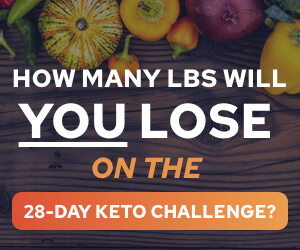The keto diet is a low-carbohydrate, high-fat diet that may have various effects on cholesterol levels and heart health. Some studies suggest that the keto diet can lower total and LDL (bad) cholesterol levels, while raising HDL (good) cholesterol levels, in the long term. However, other studies have shown mixed or negative results, with some people experiencing increased total and LDL cholesterol levels, especially in the short term. The quality of the fat sources on the keto diet may also play a role in cholesterol levels. Some experts recommend choosing mostly unsaturated fats, such as olive oil, avocado, nuts, and seeds, over saturated fats, such as butter, cheese, and red meat, to lower the risk of heart disease. The keto diet is not suitable for everyone, and it may have some side effects and risks. People with kidney disease, liver disease, gallbladder problems, or certain genetic disorders may need to avoid or modify the keto diet. Pregnant and breastfeeding women, children, and older adults may also need to be cautious or consult a doctor before starting the keto diet. If you have high cholesterol levels or other risk factors for heart disease, you should talk to your doctor before trying the keto diet. They can help you determine whether the diet is safe and appropriate for you, and monitor your cholesterol levels and other health indicators. You may also benefit from working with a registered dietitian who can help you plan a balanced and nutritious keto diet that meets your needs and goals.
What is the Keto Diet?
The keto diet is a low-carb, high-fat diet that aims to put your body into a metabolic state called ketosis. In ketosis, your body burns fat instead of carbs for energy, which can have various health benefits. Some of the benefits may include weight loss, lower blood sugar and insulin levels, and improved brain function. However, the keto diet also has some potential risks and side effects, such as kidney stones, liver damage, nutrient deficiencies, and keto flu. Therefore, it is important to consult your doctor before starting the keto diet, especially if you have any medical conditions or take any medications.
How Does the Keto Diet Affect Cholesterol Levels?
The keto diet is a low-carbohydrate, high-fat diet that may have various effects on cholesterol levels and heart health. Cholesterol is a waxy substance that circulates in the blood and helps the body produce hormones, vitamin D, and cell membranes. However, too much cholesterol can increase the risk of heart disease and stroke by forming fatty deposits in the arteries.
There are two main types of cholesterol: low-density lipoprotein (LDL) and high-density lipoprotein (HDL). LDL is often called the “bad” cholesterol because it contributes to plaque buildup in the arteries, while HDL is known as the “good” cholesterol because it helps remove LDL from the blood.
The keto diet may affect cholesterol levels in different ways, depending on the type and amount of fat, protein, and carbohydrate intake, as well as individual factors such as genetics, age, and health status.
Some studies have suggested that the keto diet can lower total and LDL cholesterol levels, while raising HDL cholesterol levels, in the long term. This may be due to the weight loss, improved insulin sensitivity, and anti-inflammatory effects of the diet. However, other studies have shown mixed or negative results, with some people experiencing increased total and LDL cholesterol levels, especially in the short term.
The quality of the fat sources on the keto diet may also play a role in cholesterol levels. Some experts recommend choosing mostly unsaturated fats, such as olive oil, avocado, nuts, and seeds, over saturated fats, such as butter, cheese, and red meat, to lower the risk of heart disease.
The keto diet is not suitable for everyone, and it may have some side effects and risks. People with kidney disease, liver disease, gallbladder problems, or certain genetic disorders may need to avoid or modify the keto diet. Pregnant and breastfeeding women, children, and older adults may also need to be cautious or consult a doctor before starting the keto diet.
If you have high cholesterol levels or other risk factors for heart disease, you should talk to your doctor before trying the keto diet. They can help you determine whether the diet is safe and appropriate for you, and monitor your cholesterol levels and other health indicators. You may also benefit from working with a registered dietitian who can help you plan a balanced and nutritious keto diet that meets your needs and goals.
What are the Benefits and Risks of the Keto Diet?
The keto diet is a low-carbohydrate, high-fat diet that aims to put your body into a metabolic state called ketosis. In ketosis, your body burns fat instead of carbs for energy, which can have various health benefits. However, the keto diet also has some potential risks and side effects, which you should be aware of before trying it.
Some of the benefits of the keto diet may include:
- Weight loss: The keto diet can help you lose weight by reducing your appetite and increasing your fat burning.
- Blood sugar and insulin levels: The keto diet can lower your blood sugar and insulin levels, which may improve your diabetes management and reduce your risk of metabolic syndrome.
- Brain function: The keto diet can enhance your brain function by providing it with ketones, which are an alternative fuel source to glucose. Some studies suggest that the keto diet may help with epilepsy, Alzheimer’s disease, Parkinson’s disease, and other neurological disorders.
Some of the risks and side effects of the keto diet may include:
- Keto flu: The keto diet can cause flu-like symptoms, such as headache, fatigue, nausea, and constipation, in the first few days or weeks of starting the diet. This is due to your body adapting to the low-carb intake and switching to ketosis.
- Kidney stones: The keto diet can increase your risk of kidney stones, especially if you are not well-hydrated or have a history of kidney problems. This is because the keto diet can increase your urine acidity and calcium excretion, promoting stone formation.
- Liver damage: The keto diet can put extra stress on your liver, which is responsible for metabolizing fat and producing ketones. This can lead to liver damage, especially if you have a preexisting liver condition or drink alcohol regularly.
- Nutrient deficiencies: The keto diet can cause nutrient deficiencies, such as vitamin A, vitamin C, vitamin K, folate, and fiber, because it restricts many foods that are rich in these nutrients, such as fruits, vegetables, grains, and legumes.
- Heart health: The keto diet can affect your heart health, depending on the type and quality of fat you consume. Some studies suggest that the keto diet can lower your total and LDL (bad) cholesterol levels while raising your HDL (good) cholesterol levels, which may protect your heart. However, other studies show that the keto diet can increase your total and LDL cholesterol levels, especially if you eat too much-saturated fat, such as butter, cheese, and red meat, which may harm your heart.
The keto diet is not suitable for everyone, and it may have some long-term health consequences that are not yet fully understood. Therefore, it is important to consult your doctor and a registered dietitian before starting the keto diet, especially if you have any medical conditions or take any medications. They can help you determine whether the keto diet is safe and appropriate for you, and monitor your health indicators. They can also help you plan a balanced and nutritious keto diet that meets your needs and goals.
Conclusion
In conclusion, the keto diet presents a complex landscape concerning its impact on cholesterol levels and overall heart health. While some evidence suggests potential benefits, such as lowered LDL cholesterol and raised HDL cholesterol levels in the long term, conflicting results and risks exist, particularly in the short term and among certain populations. The quality of fat sources consumed in the diet plays a crucial role, emphasizing the importance of opting for healthier unsaturated fats over saturated fats. Furthermore, the keto diet is not universally suitable and may pose risks for individuals with specific health conditions or demographics.
Disclaimer
The information and advice that you provide are not intended to replace professional medical consultation, diagnosis, or treatment. seek the advice of their physician or other qualified health provider before starting or changing any diet or lifestyle.





